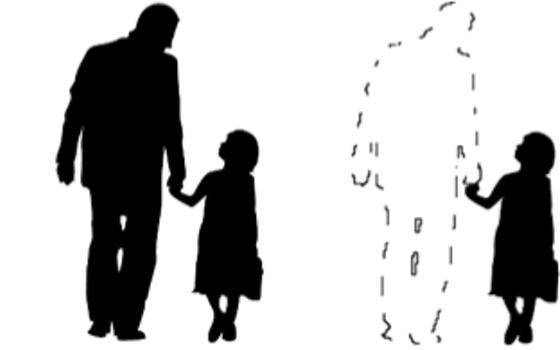- MENU
- HOME
- SEARCH
- WORLD
- MAIN
- AFRICA
- ASIA
- BALKANS
- EUROPE
- LATIN AMERICA
- MIDDLE EAST
- United Kingdom
- United States
- Argentina
- Australia
- Austria
- Benelux
- Brazil
- Canada
- China
- France
- Germany
- Greece
- Hungary
- India
- Indonesia
- Ireland
- Israel
- Italy
- Japan
- Korea
- Mexico
- New Zealand
- Pakistan
- Philippines
- Poland
- Russia
- South Africa
- Spain
- Taiwan
- Turkey
- USA
- BUSINESS
- WEALTH
- STOCKS
- TECH
- HEALTH
- LIFESTYLE
- ENTERTAINMENT
- SPORTS
- RSS
- iHaveNet.com: Family Life

by Leonard Pitts Jr.
Maybe you heard about the tribute Kevin Durant paid his mother last week. You probably missed the one he paid his dad.
Both came during Durant's acceptance speech after being named the NBA's Most Valuable Player. Maybe you don't follow sports, maybe you've never heard of Durant, maybe you think a pick and roll is a roadside produce stand. You still should see the video.
In a voice choked with tears Durant, a ferociously talented forward for the Oklahoma City Thunder, thanks God. He thanks each teammate by name, thanks his coach, support staff, brothers, friends, grandmother, fans, the sportswriters who voted for him. And in the part that will have you clearing your throat and discovering a foreign particle in your eye, he speaks directly to his mother.
"The odds were stacked against us," he says. "Single parent with two boys by the time you were 21 years old. . . . We moved from apartment to apartment by ourselves. One of the best memories I have is when we moved into our first apartment. No bed, no furniture, and we just all sat in the living room and just hugged each other. We thought we'd made it."
He recalls her waking him up before dawn to work on his game, exhorting him to run, practice, play to the pinnacle of his ability. "You made us believe; you kept us off the streets, put clothes on our backs, food on the table. When you didn't eat, you made sure we ate. You went to sleep hungry. You sacrificed for us. You're the real MVP." Wanda Pratt catches her tears in her hand as the crowd gives her a standing ovation.
By contrast, Durant's acknowledgment of his father is short and almost perfunctory. He notes the "up and down road" they have traveled, the support his father has given "from afar." He tells him he loves him, but he lavishes less emotion on Wayne Pratt than he does Russell Westbrook who's only a teammate, or Scott Brooks, who's only his coach.
It is a telling moment.
It turns out Pratt deserted his wife and two boys when Kevin was one, because, as he told the Washington Post, "I was immature, selfish; I was young." It took him almost 10 years to apologize to his sons and make peace with his ex-wife. He says he was a constant presence during Kevin's teenage years.
The intention here is not to indict father or son. No, the intention is simply to say this:
The absence of fathers matters.
We have evolved a society wherein we pretend the opposite is true. The disappearance of fathers is now nearly the norm. Almost one in four American children lives in a household without their biological dads. For brown kids, that number stands at about 28 percent. For black kids, it's a little better than half.
Mass incarceration and the War on Drugs have certainly played a role in this. But just as surely, a role is also played by the new social more which says it's okay for a man or a woman to be feckless, for him to wander away because he is immature, selfish and young, for her to have a baby on her own because the clock is ticking and really, she doesn't need a man for anything more than sperm. This is the new morality, the new American mindset.
And we tell ourselves it's okay, that this haphazardness has no impact upon the child, that father is not irreplaceable, that his disappearance leaves no scar. But the statistics on poverty, drug use, education and incarceration suggest otherwise. So, in a different sense, does Durant's speech -- a glowing encomium to the woman who brought him through his earliest years alone, a scattering of obligatory words for the man who was not there.
As such, the speech was a testimony to the power of a mother's love. But it was also a reminder:
A father's absence has power, too.
Article: Copyright ©, Tribune Content Agency
Family Life: The Absence of Fathers Matters